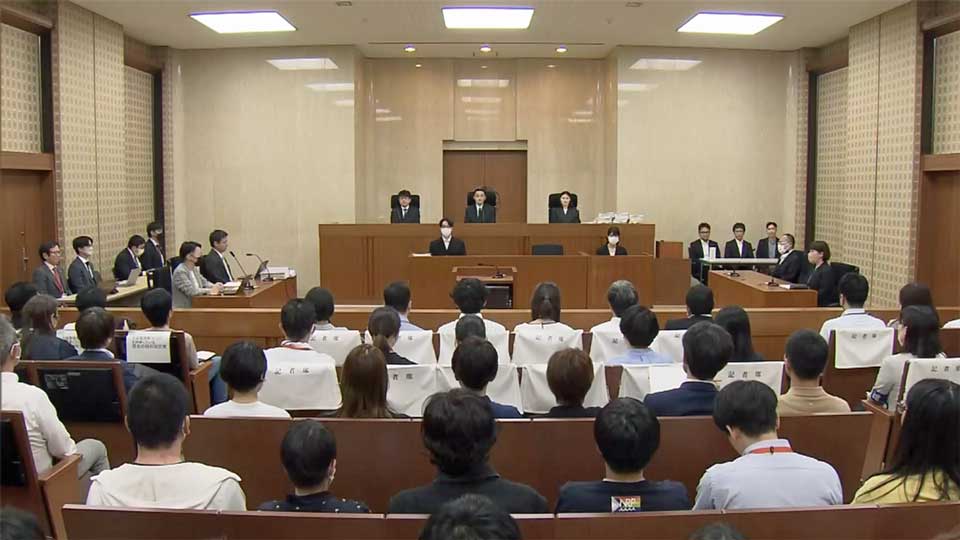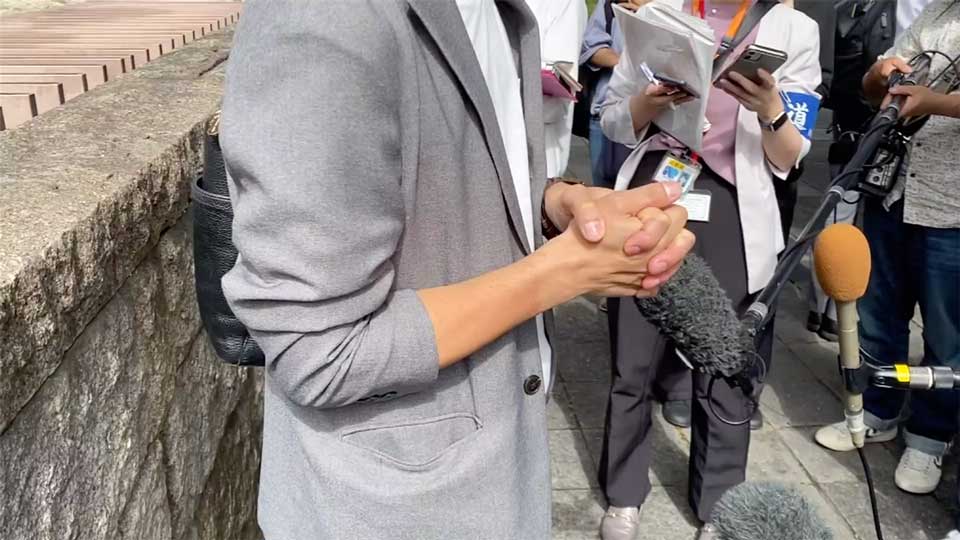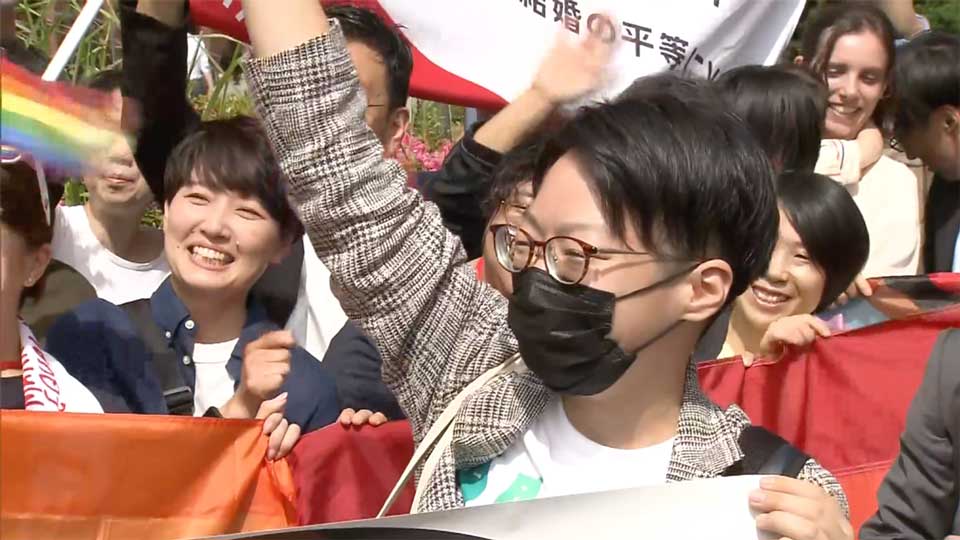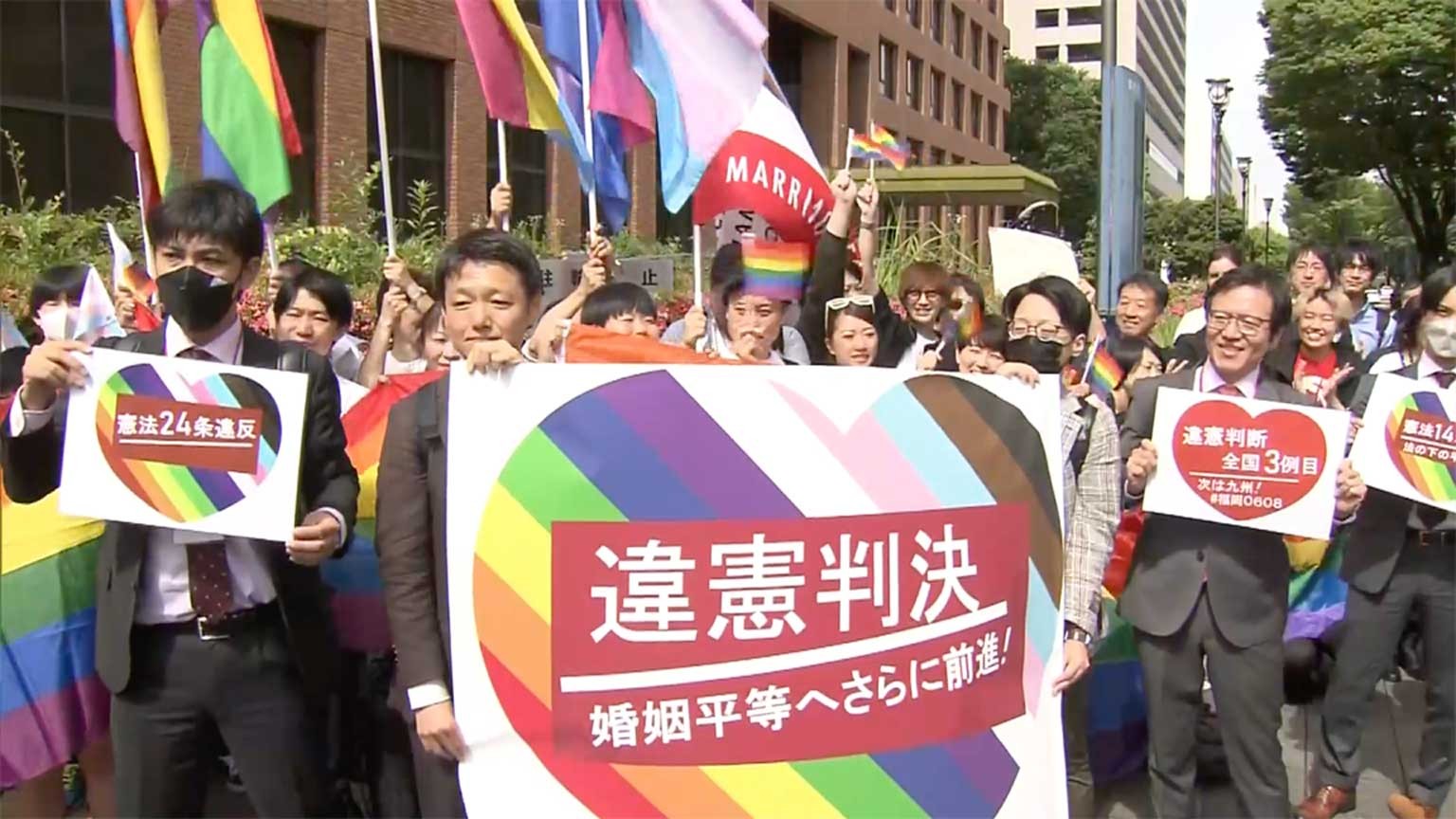On Tuesday, the Nagoya District Court delivered its ruling on a lawsuit filed in 2019 by a same-sex couple in their 30s.
The plaintiffs said being unable to marry disregards the principles of freedom and equality guaranteed by Japan's top law.
The judge said a failure to recognize same-sex marriage violates Article 14 of the Constitution, which stipulates that all people are equal, and Article 24, which stipulates that "laws shall be enacted from the standpoint of individual dignity and the essential equality of the sexes."
The court rejected the plaintiffs' claims for compensation from the government.

Lawyers hail ruling
Still, plaintiff Takami Akikazu (not his real name) says he's very happy, and was able to continue with the trial thanks to the support of many people.
"I feel the way of thinking is changing with the times," he says, adding that he hopes the ruling raises awareness about same-sex couples, and pushes lawmakers into taking firm action.

"I hope not only LGBTQ people, but all members of society respect and help each other," he says.
Lawyer Mizutani Yoko says the court has made "a more thorough decision on the issue of same-sex marriage than any other district court so far." And she describes it as a big step toward marriage equality.

Past rulings divided
Similar lawsuits have been filed in Tokyo, Sapporo, Osaka and Fukuoka in recent years.
In March 2021, the Sapporo District Court became the first to rule that not recognizing same-sex marriage violates the Constitution.
The judge said there should be no difference in legal benefits based on sexual orientation, adding that the ban is unreasonable and discriminatory.
But in June 2022, the Osaka District Court ruled that the ban does not violate the Constitution. The judge said Article 24 stipulates that marriage shall be based on the mutual consent of parties from both sexes.
The Tokyo District Court also ruled the ban constitutional in November that year. At the same time, the judge said not providing legal protections for same-sex families represents an "unconstitutional state."
The remaining ruling at the Fukuoka District Court will be handed down on June 8.
Govt. gauging opinion
On Tuesday, Japan's Chief Cabinet Secretary Matsuno Hirokazu said the government doesn't believe the Civil Code and other provisions on marriage violate the Constitution.
On same-sex marriage, he said it will be necessary to pay close attention to a wide range of opinions from the public, as well as discussions in the Diet and the outcomes of lawsuits.
NHK poll: 44% support same-sex marriage
A recent poll shows that more than 40 percent of Japanese people think same-sex marriage should be legalized.
NHK conducted a phone survey in early April on 3,275 randomly chosen people, and 1,544, or about 47 percent, responded.
Forty-four percent said same-sex marriage should be legalized, and 15 percent said it should not. Thirty-seven percent were undecided.
Thirty-three percent of those who think it should be legalized cited disadvantages for unmarried couples, such as the unavailability of some administrative services.
Twenty-six percent said same-sex marriage is legal in other countries, and 25 percent said they think not legalizing it violates the Constitution.
Among those who opposed legalizing same-sex marriage, 53 percent said spouses should be heterosexual. Twenty-three percent cited traditional values, eight percent said they think same-sex marriage is denied under the Constitution, and six percent said some local governments have prepared adequate administrative services for LGBTQ couples.

